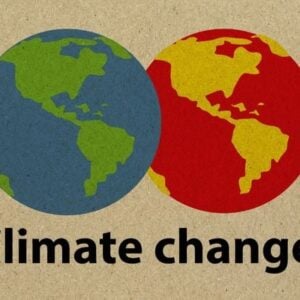Germany’s support for climate action in Somalia is demonstrating how environmental restoration can reduce conflict and strengthen community resilience ahead of the Berlin Climate and Security Conference 2025. Backed by the German government, the UN Environment Programme (UNEP), and the International Organization on Migration (IOM), projects in Somalia are linking climate, peace, and security by addressing resource scarcity and environmental degradation.
In Hirshabelle State, limited grazing land and scarce water resources have historically triggered clashes between clans, which worsened after the 2022 drought. New initiatives focusing on ecosystem restoration and sustainable resource sharing have eased tensions. Clan members have participated in peace talks to agree on the shared use and conservation of pastures and groundwater, demonstrating the potential for climate-sensitive interventions to prevent conflict.
These projects form part of a broader UN effort to promote peace in Somalia by restoring grasslands, watercourses, and other ecosystems. UNEP highlights that improving access to vital resources and rehabilitating the environment can prevent violence before it occurs. Somalia’s prolonged conflict, combined with climate change-driven drought and desertification, has displaced nearly 4 million people and created openings for extremist groups to exploit instability.
The UN Climate Security Mechanism, launched in 2018, supports countries like Somalia in addressing climate-related security risks systematically. Since 2020, Christophe Hodder has served as the UN’s first Climate Security Advisor to Somalia, helping the Ministry of Environment conduct risk analyses, secure funding, and strengthen institutional capacity to integrate environmental issues into conflict prevention.
On the ground, projects have rehabilitated municipal water systems in Jowhar, benefiting 1.6 million people and reducing inter-community tensions. In Galmudug, planting cacti stabilized advancing sand dunes, preventing forced migration. Reforestation initiatives, including the creation of acacia nurseries in Yontoy, have restored degraded land, provided sustainable livelihoods, and reduced competition over natural resources, empowering local communities to manage resources responsibly.
Funding and partnership have been critical to these efforts. IOM and UNEP have matched community-generated project proposals with financial support, while the World Bank has invested US$70 million in rural water, agriculture, and environmental services. The Green Climate Fund committed US$100 million in 2024 to enhance climate resilience. Somalia has also contributed financially to UNEP’s Environment Fund, reinforcing local ownership and sustainability.
Climate-peace-security considerations are now embedded in Somalia’s national climate adaptation plan, its Paris Agreement commitments, and national stabilization strategies. Security forces incorporate climate risks, such as water scarcity and desertification, into threat assessments and planning. The UN Climate Security Mechanism has expanded globally, with climate security advisors deployed in countries including Afghanistan, Iraq, and South Sudan, illustrating a systemic shift in linking environmental expertise to security.
While challenges remain, the German-supported climate and peacebuilding initiatives in Somalia offer promising lessons. UNEP emphasizes that environmental restoration and institution-building are not only essential for ecological health but also foundational for lasting peace, providing a model for integrated climate-security solutions worldwide.







